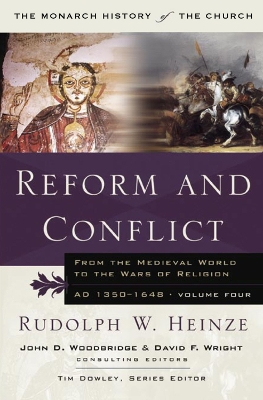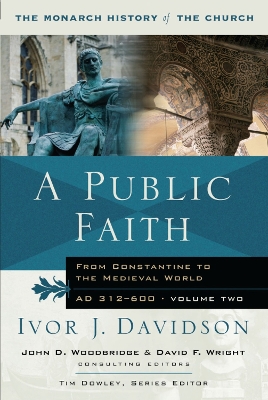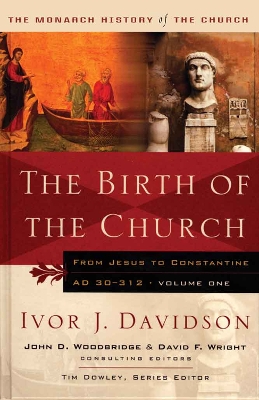Monarch History of the Church
3 total works
This volume covers a period of major change that had a lasting impact on art, science, economics, political thought, and education. Rudolph W. Heinze examines the various positions taken by medieval church reformers, explores the efforts of the leading reformer Martin Luther, and emphasises how the reformations brought moral and doctrinal changes to Christianity, permanently altering the religious landscape, then and now.
As volume two opens, persecution of Christians is coming to an end with the triumph of Constantine. Soon legal measures protected church interests. Clergy are exempted from taxation; Christian pastors are appointed as military chaplains. But inclusion brings its own dangers as the temptations to compromise grow stronger. The following centuries will see painful heart-searching as church and state grow closer, and the doctrinal wrangles of the early church continue.
The Monarch History of the Church is an eight-volume series by world-renowned historians and theologians. Each volume offers an even-handed, comprehensive and readable assessment of the main strands of Christianity within its period. The first volume covers the period AD 30-312. During this time, the church experienced major challenges politically, culturally and intellectually, yet grew and defined itself in remarkable ways. Here is the story of Christianity's earliest shapers - men and women whose influence is still felt today.


